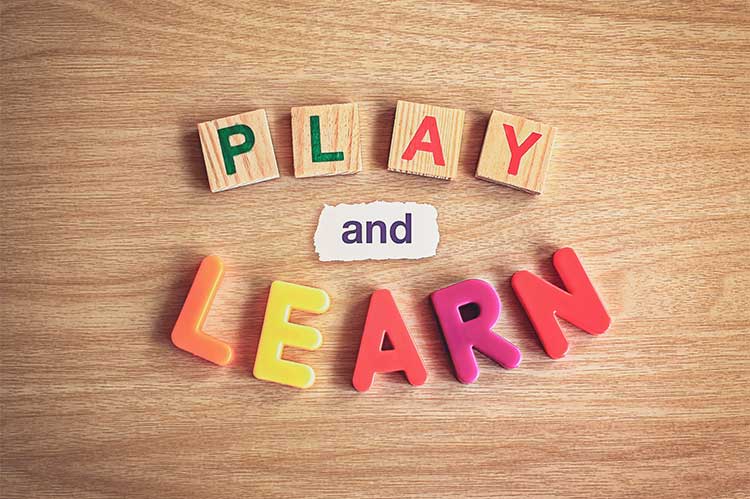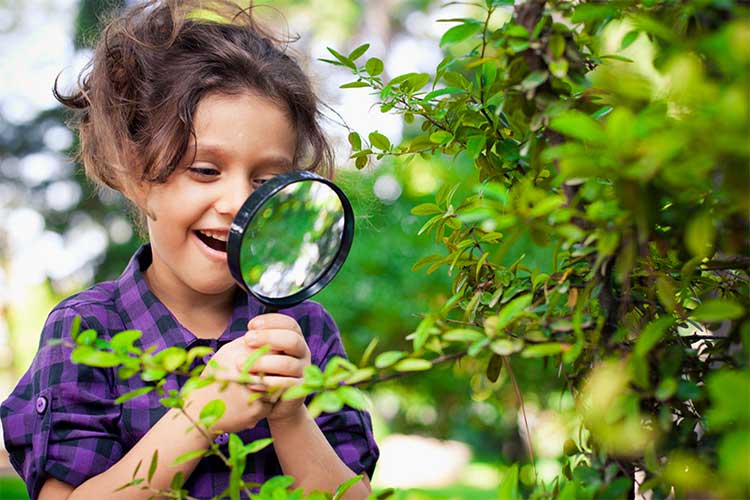Secure your Kid's Spot in our Writing Classes! Register here!

What we're talking about!
Check back often for updates!

In the ever-evolving field of neuroscience, one of the fascinating discoveries has been the impact of enjoyment and fun on the brain's learning capacities. While traditional educational systems often emphasize rigorous structure and discipline, research suggests that integrating an element of fun into learning can significantly enhance cognitive performance. These findings are not just anecdotal; using games can foster social and emotional learning.
This essay explores why and how the inclusion of fun and enjoyment can stimulate our brains, increase engagement, and ultimately, amplify our capacity to learn and retain information. This perspective challenges conventional notions about the nature of effective learning and opens new avenues for reimagining education. The goal is to illuminate the idea that learning at its best, should be an engaging and enjoyable journey, not a tedious trek.
In part 1 of this essay we will be exploring the first three ways of embracing fun into learning.
Using educational games, puzzles, or interactive exercises that align with the learning objectives.
Incorporating games into education is a dynamic approach to introducing an element of fun while addressing learning objectives. Games are known to create an engaging environment, stimulating a healthy sense of competition, accomplishment, and enjoyment. The right game can make a mundane lesson interesting and when children have fun they are able to retain knowledge more efficiently. The goal is not to substitute other forms of learning with games but utilizing it as an augmenting tool to capture children’s attention and to motivate them to learn.
Let’s take the example of teaching vocabulary. Instead of relying on rote memorization, which can be tedious, you could turn it into a word association game. When you are teaching a new word, let’s say “beach”, as you explain the meaning of the word, ask your child to say a word that reminds them of beach. They might say “sand”. You can add to the chain by saying “desert”, and so it goes. Research shows that our brain learns best by association, so here we lean into that approach to nurture children’s associative thinking to learn.

Turning a lesson into an outdoor adventure like field trips, outdoor experiments, or nature-based activities can add a fun element.
Outdoor learning experiences offer a hands-on approach to learning, promotes physical activity, and fosters a deeper connection with our natural environment. The outdoors can provide endless opportunities for kids to engage in discovery and exploration. The dynamic environment not only makes it fun, it builds life-skills like problem-solving, team-work, and resilience that contribute to their holistic development. It instills in our children values of conservation and respect for nature.
One of the most popular ways to enjoy the outdoors while learning is a scavenger hunt. Teachers or parents can create a list of items, like a pinecone, feather, a type of leaf, or a particular kind of rock. As children search for these items, they build their observation and identification skills. You can make it a learning adventure by associating each item with a fun fact, or asking your students to research about the particular object. Let’s say they find a pine cone, they can explore which part of the tree it comes from or how it plays a role in the tree’s life cycle. Encourage them to write about their experience as well as record their observations to build those writing muscles.
Implementing creative narratives or role-playing scenarios related to the topics being taught deepens understanding.
Storytelling and role-play are powerful tools that can boost learning and development in children. They not only spark imagination and creativity in young minds but also make it relatable and enjoyable. When children are enacting an event from their history lesson, due to the immersive nature of the exercise, it helps them understand complex characters, improve memory retention, and develop empathy for a particular character or event. It allows children to build their public speaking, writing, and social skills.
A practical example of using storytelling and role-play in learning would be to create a history lesson around the life of a famous historical figure, like Martin Luther King Jr. Students can start by reading and researching about him. They can then build their writing skills by creating a script for the role-play. They can work in a team and brainstorm to figure out who plays who and which event from Dr. King’s life they would be enacting. By immersing into a particular event, children can develop a deeper understanding of the lesson, remember the information, and most importantly, develop empathy.
Have you heard the adage, “I hear and I forget. I see and I remember. I do and I understand.” Using interactive methods to boost learning is all about extending it beyond just reading or hearing. Seeing, experiencing, and implementing the lessons and concepts that children are learning in classrooms can not only make it fun but solidify the retention and improve understanding.
Watch out for this space as in our next blog, we will be sharing three additional methods to incorporate fun in order to improve our brain’s learning capacities.
—-----------------------------------------—-----------------------------------------—------------------
Finding new ways to inspire kids to write and communicate effectively is one of my life’s work which is why I include many fun activities in our writing classes to inspire the next generation of thinkers. Want to learn more about our story writing camps for summer? Check us out here.
Help your kids fall in love with reading!
Need a list of amazing books to get your kids inspired about writing their own stories?
Grab your free copy by completing the form.
We'll email you the ebook!